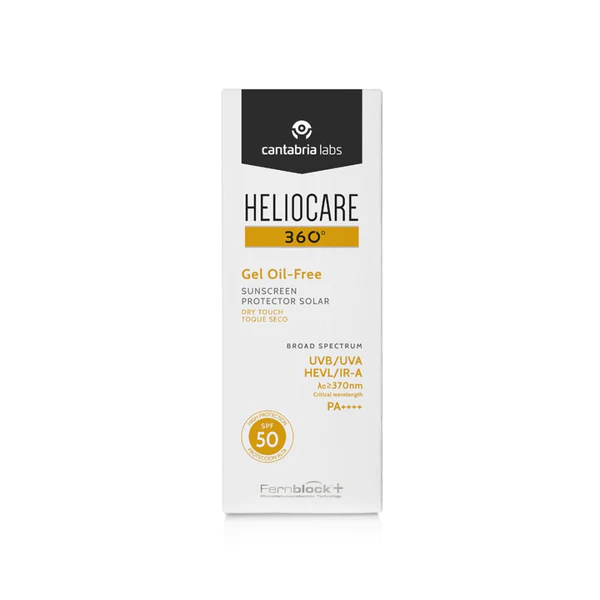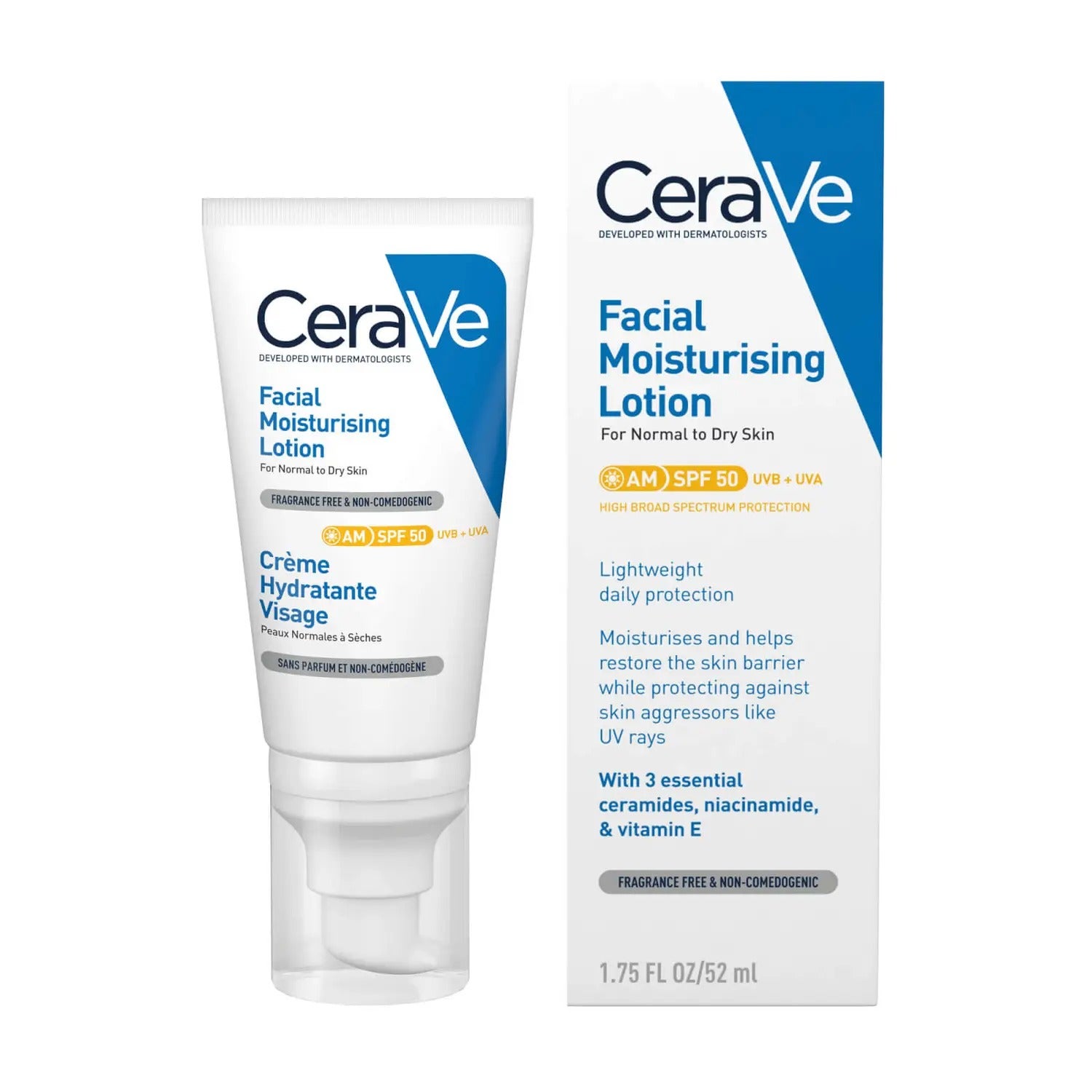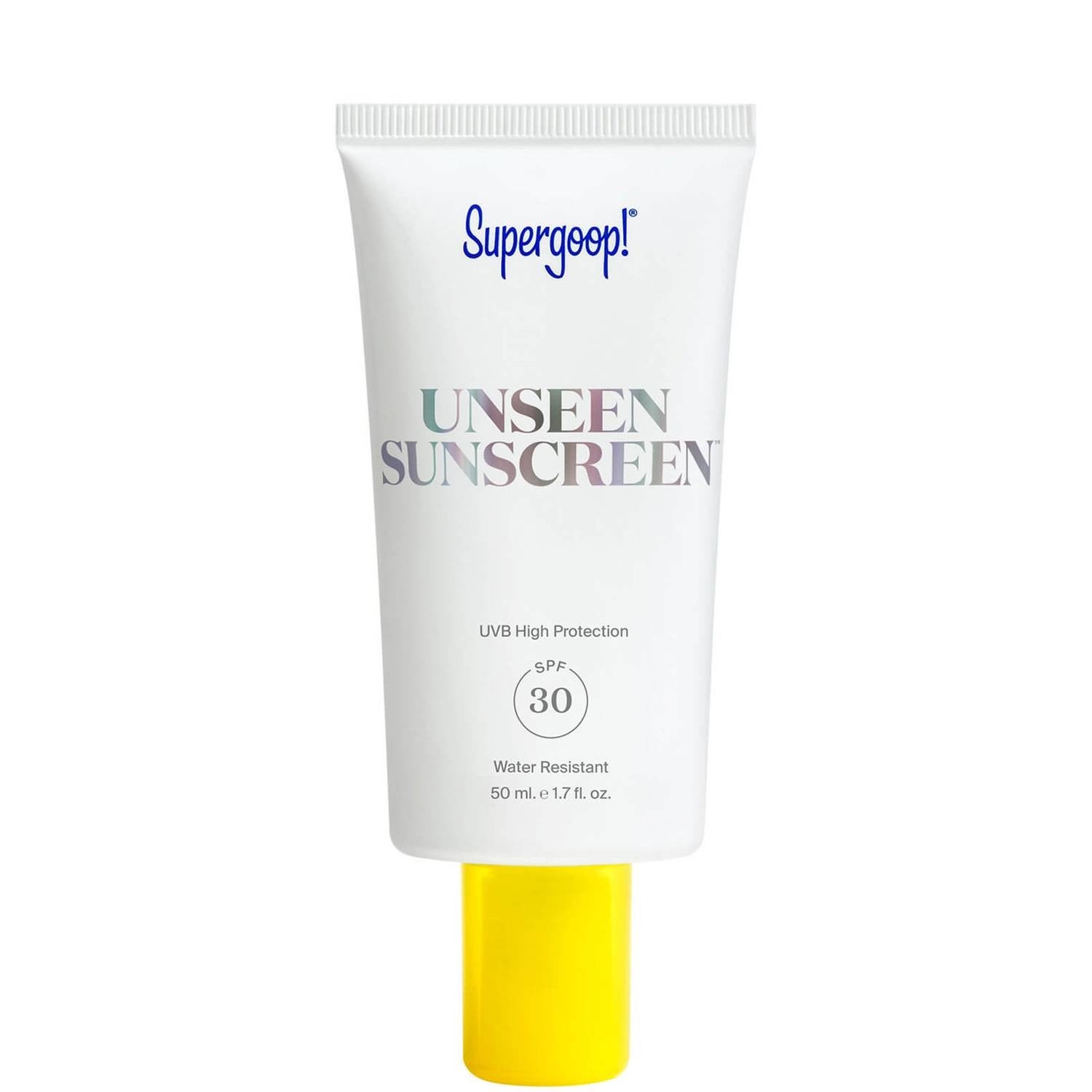All linked products are independently selected by our editors. If you purchase any of these products, we may earn a commission.
Welcome to Sun Blocked, Refinery29’s global call to action to wake up to the serious dangers of tanning. No lectures or shaming, we promise. Instead, our goal is to arm you with the facts you need to protect your skin to the best of your ability, because there’s no such thing as safe sun.
Of all the Black hair and skincare myths I’ve heard throughout the years as a magazine editor (and among my family and friends), the most pervasive is the “Black people don’t need sunscreen” myth. I’ve heard every anti-sunscreen conspiracy theory there is. You may have, too. Our ancestors never wore sunscreen! Black people in hot climates don’t wear sunscreen so why should we in the UK? Aren’t Black people immune to UV rays? While these are somewhat legitimate queries — especially considering Black people are rarely included in skincare research — dermatologists and aestheticians are clear: Yes, Black and brown people should wear sunscreen. Full stop.
AdvertisementADVERTISEMENT
Regularly applied SPF is the best defence against harmful UVA and UVB rays, premature ageing, hyperpigmentation and skin cancer — this includes melanated people who are less likely to develop sunburn. And yet, recently a colleague asked a question that made me pause: “If Black and brown people are more prone to vitamin D deficiency should Black people wear sunscreen?”
I can understand the need for clarification. To say that Black and brown people need the sun is an understatement. According to the NHS, those with darker skin are more likely to have a vitamin D deficiency, as increased melanin in the skin reduces a person’s ability to make vitamin D from sun exposure. Depression, fatigue, bone and joint pain, muscle cramps, and a low immune system are just some of the reported symptoms of a vitamin D deficiency, making it important for darker-skinned people, like myself, to acknowledge our increased risk. However, because of this, many “anti-sunscreen conspiracy theorists” are falsely purporting that those with a vitamin D deficiency should ditch sunscreen entirely, especially on TikTok where there is a reported anti-sunscreen movement.
For R29’s Sunblocked series, Black dermatologists and aestheticians helped Unbothered demystify the science concerning vitamin D and sunscreen to ensure misinformation doesn’t stand in the way of adequate sun protection.
Does wearing sunscreen prevent vitamin D absorption in darker skin tones?
Since the pandemic, there have been more necessary conversations in mainstream media about how vitamin D deficiency uniquely affects Black people’s health and there’s still more to learn. Understandably, many Black people feel conflicted by some of the advice they receive to “top up” vitamin D levels by going outdoors. Considering that the body creates vitamin D from direct sunlight on the skin when outdoors, can sunscreen — which protects skin from UVB rays — prevent vitamin D production?
AdvertisementADVERTISEMENT
“Several studies have looked at the effect of sunscreen on vitamin D production and there is little evidence that wearing sunscreen reduces production of vitamin D by the skin,” says Dr Derrick Phillips, a London-based consultant dermatologist. “However, these studies mainly involved fair-skinned populations,” he adds, referencing the Fitzpatrick scale, a dated measurement used to estimate the response of different types of skin to ultraviolet (UV) light. It has been criticised for its Eurocentric bias in the past.
However, scientists agree that people who use sunscreen daily can maintain their vitamin D levels. “Most people don't wear enough sunscreen [on a daily basis] for them to actually worry about the amount of vitamin D their body can truly absorb,” says Alicia Lartey, a London-based aesthetician and skincare content creator. “Living in a climate like the UK, or just the northern hemisphere in general, you would have to take extra vitamin D supplements, anyway,” she explains. “I always tell people to wear sunscreen, regardless if you are vitamin D deficient.” While regular sun exposure can help those who are vitamin D deficient, Lartey suggests prioritising supplementation other than “standing around in the UK sun” to see long-term health benefits.
Should Black and brown people wear SPF in the winter?
Living in the UK can be “bad vibes” for various reasons and the country’s dark and gloomy winters are particularly miserable. It’s during the winter months when I and many Black and brown folk are encouraged to take vitamin D supplements to support our immune health and stabilise our mood. “We know that skin of colour is not very good at converting UV rays into vitamin D, therefore most people with Black and brown skin in the UK are vitamin D deficient and should supplement throughout the year, especially during the winter months,” explains Dr Phillips. Dr Phillips adds that while the majority of vitamin D is absorbed by the skin, its effects benefit the entire body.
AdvertisementADVERTISEMENT
Doctors and scientists agree that some sun exposure is one of the best ways to get more vitamin D, as well as taking supplements. However, in the UK, the sun is only strong enough for us to make the vitamin from sunlight between April and September. With that being said, should Black people bother wearing SPF in the winter?
“Lartey says that there often times when the UV index — a measurement of the strength of sunburn-inducing UV rays — is very low in the UK. In these instances, Lartey says that wearing sunscreen isn’t particularly necessary. But it’s beneficial to get in the habit of applying it daily. “I don’t think I’m sophisticated enough to remember to check the UV index and then apply my sunscreen as needed,” Lartey says. “It’s a lot easier for people to build the habit of wearing SPF every single day so when the sun is out, it’s not an extra step that you have to take on.”
Why should Black people take sun protection seriously?
While more melanin means more sun protection than people with paler skin tones, it doesn’t make Black people exempt from sun-related skin issues. “The high concentration of melanin in Black and brown skin affords a degree of protection equivalent to SPF 13. However, prolonged exposure to harmful UV rays will still result in damage to skin cells, and structures within the skin. Sunburn can also occur with prolonged exposure to high-intensity UV radiation,” explains Dr Phillips. “Darker skin tones are more susceptible to hyperpigmentation and some conditions that are more prevalent in skin of colour, such as lupus, are aggravated by sunlight. So there are many good reasons for people with highly melanated skin to wear sunscreen.”
AdvertisementADVERTISEMENT
Alicia Lartey adds more food for thought. “Our definition of Black is very broad as well. My Blackness is not the same as my mum’s Blackness, who has more melanin than me, so she wouldn’t burn as quickly as I do in the sun. The rapper Ice Spice, for example, I would categorise on the Fitzpatrick scale as 1-2, meaning she’s very, very light but is considered Black. So I do think that there are certain nuances,” she adds. In recent years, SPF made with Black and darker-skinned people in mind has become more prevalent on the market. Black-owned brands such as Black Girl Sunscreen and inclusive products such as Supergoop!’s Unseen Sunscreen ensure our communities are given adequate protection without having to deal with the dreaded white cast, and Black skincare content creators, such as Janet (@skinandbase) and Okikiola Emaleku (@theskinpriest), are doing the Lord’s work when it comes to encouraging daily sunscreen use in our communities. Happily, Lartey also reports that large strides are being made within the beauty industry to alleviate the “medical distrust” that many Black people have about some of the skincare advice aimed in our direction. For example, there are now many Black experts in the sunscreen formulation field.” “We have many Black experts in this field,” she says. “When I do product development, they so many Black people that I meet behind the scenes.”
Largely, this shows that attitudes are improving when it comes to including darker-skinned people in this (very important) conversation. And, over time, the myth that Black people don’t need to wear sunscreen is increasingly falling out of favour. The evidence points to one conclusion: Sunscreen is highly beneficial for darker skintones, it’s the anti-SPF myths that are the most detrimental to our skin health.
AdvertisementADVERTISEMENT
Dermatologist and aesthetician-approved sunscreen brands for dark skin tones
If you’re not sure where to start, consider these expert-approved sunscreens that have broad-spectrum formulations that protect your skin from UVA and UVB rays and do not leave a white-grey cast.
AdvertisementADVERTISEMENT











